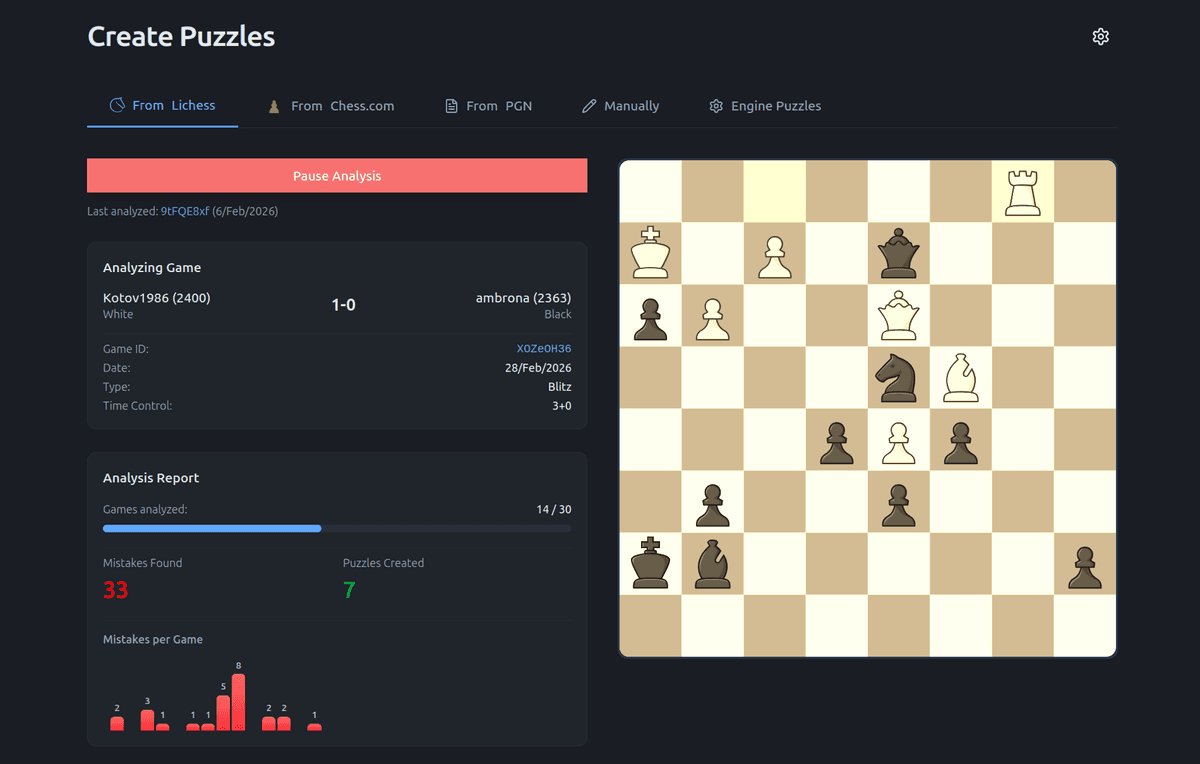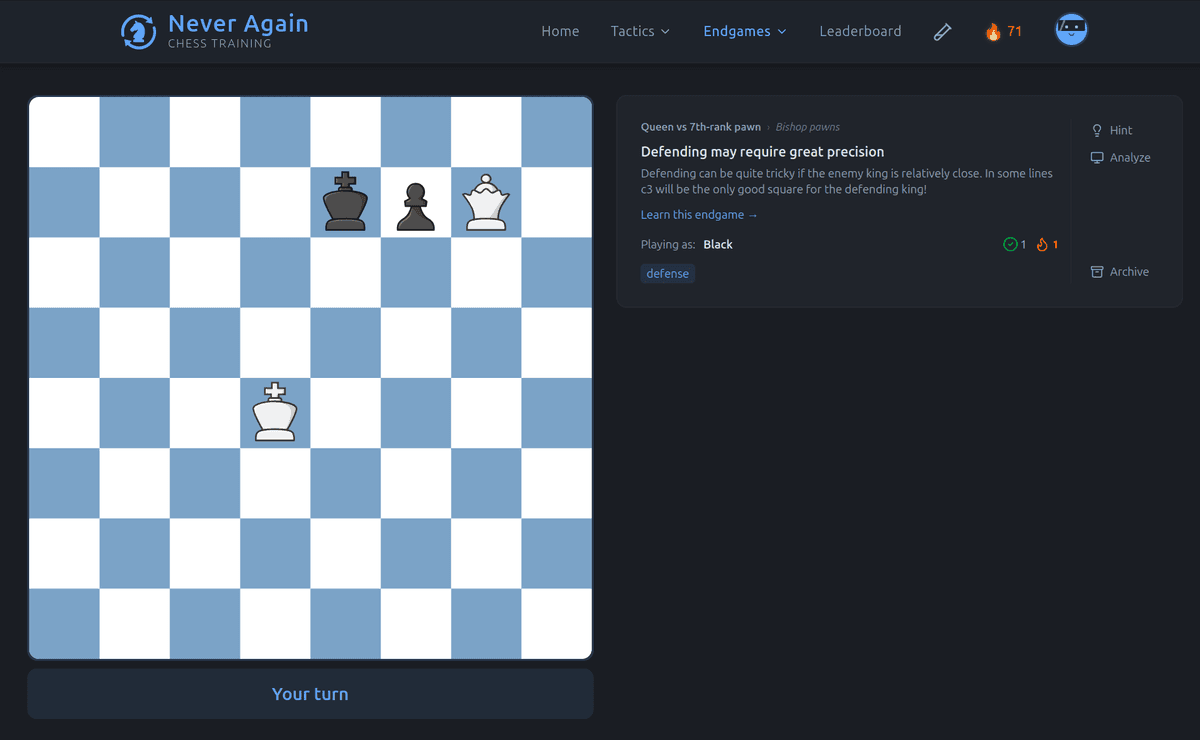
Train on your real mistakes
Puzzles extracted from your own Lichess games — the exact positions where you went wrong.
Master fundamental endgames
Play critical positions against a human-like engine that defends realistically — learn the technique, not just the theory.

Never forget what you learn
Every puzzle you solve is scheduled for review at the optimal moment. Get it right and the interval grows. Get it wrong and it comes back sooner.
Build streaks
Track accuracy
Optimal intervals